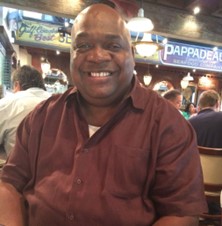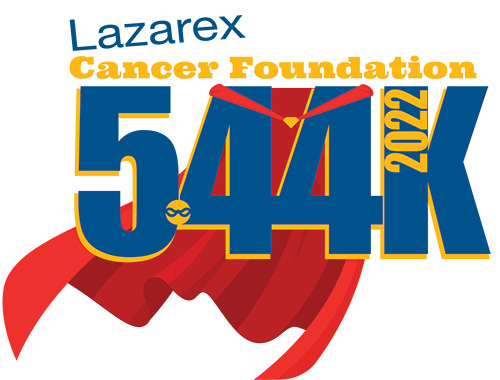Vernell, who is African American, says he understands that many patients of color have medical mistrust. As a nurse, he says he always encourages family, friends and patients to ask a lot of questions and he says, when he became a patient, he had many for his doctor before he felt comfortable enrolling in the clinical trial.

Vernell Brown is a 62-year-old nurse with 27 years of experience caring for others. He shifted from helping patients in person to doing telephone triage when he became a patient himself and was diagnosed with Multiple Myeloma in 2019. When first-line treatment and a stem cell replacement failed, he enrolled in a cancer clinical trial at UT Southwestern Medical Center. He was initially required to travel there once a week from his home in McKinney, Texas to Dallas – a little over 30 miles. Now he goes twice a month to receive medication, get blood work etc. After first declining help from Lazarex for travel reimbursements, he eventually changed his mind after several trips.
“In the beginning I felt like this was my burden. I felt like I was the one responsible to get to the appointments and back. But now I know I need help,” he explains.
Vernell, who is African American, says he understands that many patients of color have medical mistrust. As a nurse, he says he always encourages family, friends and patients to ask a lot of questions and he says, when he became a patient, he had many for his doctor before he felt comfortable enrolling in the clinical trial.
“In my community there is a lot of mistrust around healthcare and hospitals. I’m a nurse but when my doctor told me about the trial, we still had to talk for a long time before I enrolled in it,” he explains. “My doctor looked at my face and he must have seen my questions or concerns because he said – ‘Vernell, I would never recommend anything that would harm you.’ He was really good to me. He spoke directly to me and I felt he cared. As a nurse, I do understand the Tuskegee Project and what happened there. My doctor had to go beyond that to convince me.”
Vernell says he was interested in finding a new treatment that would work for him because his family has experienced a lot of cancer-related loss the last 5 years. Two of his brothers and his mother died from cancer and he has another sister who was also diagnosed with Multiple Myeloma. He’s grateful to be in the study now because it is fighting his cancer. He’s also committed to talk about it in the hopes of getting more people involved in cancer clinical trials. “I want more people to be in trials and I’m happy to be in one. I’m not naive. I know there is a possibility it may not work for me but if it doesn’t, it may work for someone else and that’s good for me too. I want to help however I can.”
Now that he’s participating in a trial, he’s also seeing firsthand the lack of diverse patients in most cancer clinical trials. Vernell says he was initially surprised that he never sees ‘anyone who looks like me’ when he goes for treatment because all the other patients he sees are white. He feels strongly that the healthcare system can and should be doing more to meet diverse patients in the community, build trust and educate them about clinical trials to increase trial enrollment and diversity.
“You tell me that for the last 20 years people in healthcare say they have been trying to get more diverse patients into studies and they won’t do it? That tells me the problem isn’t with the patients – it’s with those doing trials. If you keep doing the same thing – that’s on you, not them,” he says. “I think they’re going about it the wrong way. I don’t think they’re using the right people to communicate with those who have the disease. I think they need to go into neighborhoods and communities and work with churches. Use people that patients trust so people can learn how this can help them.”
In the meantime, the good news for Vernell, a father of 4 and grandfather to 11, is that his trial treatment is working. He is hopeful that he’s close to remission. “My goal was to double my life span from when my brother passed. In January I will have done that. He passed after two years and I’m still here at 4 years so in January, I’m going to change my goal from 4 to 8 years.”
Tap HERE to watch interview with Vernell that aired December 13, 2023.




